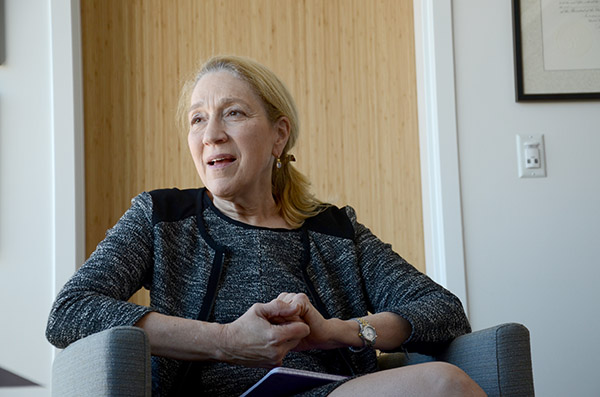Public health faculty shifted focus to Ebola this fall as professors fielded more requests from the media and looked to address structural issues in West Africa.
A public health crisis like the Ebola breakout gives professors more chances to highlight their expert knowledge, said Milken Institute School of Public Health Dean Lynn Goldman. She said the shift was seen in the everyday lives of the school’s faculty and exemplifies how public health has implications that are broader than what many people think.
Public health emergencies, such as the Ebola crisis, are particularly challenging because of the wide range of consequences. Many affected countries have a long history of conflict, civil war, poverty and corruption, which creates a deep mistrust between civilians and the government.
“In these countries, there had been so much strife and conflict that initially when the epidemic happened, people did not trust what the health authorities were doing, you know, which makes it really hard to control an epidemic,” Goldman said.
The school received two to three requests a day from media ranging from print to radio. Professors have been featured in the Wall Street Journal, in the New York Times and on National Public Radio.
Rebecca Katz, an associate professor of health policy, said the demands were somewhat overwhelming at first, but that they gave the school’s faculty opportunities to extend the reach of their research.
“We’re suppose to be creating evidence, not be talking heads,” she said. “We have an interested public that doesn’t really understand and is very scared, so it’s something we can add value to by explaining it to best of ability, talking it through, addressing their concerns.”
Aside from addressing national concerns and informing the public, they have also been able to make an impact by preventing panic, Katz said. When there was a possible case at Howard University, a professor worked with local papers to shift the dialogue on the topic.
The outbreak also pushed many professors’ areas of expertise to the forefront of public interest.
“I’ve been working on quarantine for a long time and no one was interested, but there is a lot of interest now. Is that a good thing? I don’t know, but it certainly put public health in the spotlight,” Katz said.
The chair of the global health department, James Tielsch, said a public health crisis like an Ebola outbreak can put a strain on faculty, adding pressure to their work.
“It stimulates a school-wide and even broader University-wide response in terms of, ‘Let’s think about new strategies. What can we do to get better and to better prepare?’” he said. “It kind of feeds all of the three-legged stool of academia. It feeds the research part, the teaching part and service part.”







